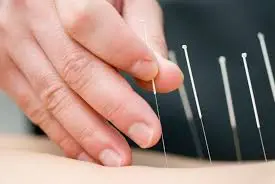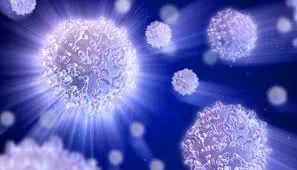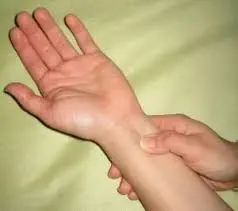By Dr. Qineng Tan, L.Ac., Ph.D. and Xiaomei Cai, L.Ac., Ph.D.

Until very recently, it seemed cancer was the one illness that had touched everyone’s life in some way. Cancer is the leading cause of death in the world. Almost 40% of the population will be diagnosed with some form of cancer at least once in their lives. We have all lost friends and relatives to this seemingly relentless form of disease. Doctors, scientists, researchers, and organizations have worked tirelessly in recent decades to develop life-saving treatments, and millions of people go on to live full lives as cancer survivors.
Cancer is a broad term that refers to the unchecked growth of abnormal cells in the body. When the body’s mechanisms for getting rid of old cells begins to break down, these damaged cells begin to divide, in some cases forming masses, or tumors. These types of cancer are usually classified by the organs affected by the tumor, including gynecological cancers such as breast cancer, ovarian cancer, cervical cancer, and endometrial cancer, as well as prostate cancer in men, lung cancer, cancers of the gastrointestinal tract (pancreatic, stomach, esophageal, colon, rectal), thyroid, brain, spine, bladder, liver, and kidneys. Carcinomas refer to cancers affecting the skin, and sarcomas to cancers affecting the musculoskeletal system. Hematological cancers involve the proliferation of abnormal blood cells, including leukemia, lymphomas and multiple myeloma.
Written records of Traditional Chinese Medicine detection and treatment of cancerous growths go back over 2000 years. In recent decades, TCM has become more recognized as a way to complement and enhance contemporary methods of treating cancer. Integrative Oncology, in which the latest technological and pharmacological advances are combined with Traditional Chinese Medicine techniques and philosophy, forms a holistic way of working with cancer patients.
Cancer Treatment Options

Cancer screening is a vital component of modern health care, as early detection offers the best chances for successful treatment. Data show that of the 18 million new cases detected in 2018, 5 million could have been discovered sooner and treated more effectively if we had higher rates of screening. Unfortunately, almost half of colorectal and cervical cancers and a third of breast cancers are not diagnosed until the disease is already in later stages, which makes them harder to treat.
When a cancerous growth is still localized, surgery and/or radiation treatment can remove or destroy much or all of the abnormal growth. When cancer has advanced to a later stage, and cells have spread through the body, then more systemic treatments are used, such as:
- chemotherapy, which uses cytotoxic drugs to kill tumor cells
- immunotherapy, a newer type of treatment, uses specifically designed synthetic antibodies to boost the body’s immune system.
- targeted therapy seeks to destroy the cancer cells without harming healthy tissues surrounding tumors.
New treatment options are constantly being researched and tested, giving patients a better chance at stopping the cancer in its tracks.
However, most cancer treatments themselves can cause serious side effects that dramatically impact quality of life. Positive outcomes also vitally depend on a person’s ability to strengthen the body’s immune system while fighting the disease, as well as coping with the severe emotional stresses involved. Research has shown that acupuncture can significantly mitigate side effects of chemotherapy, radiation treatments and other conventional methods of treating cancer.
Chemotherapy and radiation work by killing cancer cells. As these chemicals do not distinguish between normal and malignant cells, they can also damage surrounding tissues, creating more blockages. The synthetic drugs used also increase toxicity levels within the body. Acupuncture can help increase the production of white blood (immune) cells, detoxify the body and increase energy, so that the cancer can be eradicated, and new, healthy cells can flourish. Acupuncture can also improve sleep and relieve anxiety, so that hope and confidence can outweigh fears and exhaustion.
Acupuncture and TCM can be valuable for cancer patients throughout every stage of treatment, recovery and beyond, not only alleviating the pain and nausea associated with cancer treatments, but also boosting immune function, relieving anxiety and depression, and even helping to prevent the cancer from coming back.
How Can Acupuncture Help with Cancer Treatment?

Acupuncture operates based on the philosophy that the body is powered by Qi – a life force energy – that runs along pathways throughout the body called meridians. Pain and diseases are caused by blockages in these pathways that prevent Qi and nutrient-rich blood from reaching and adequately supplying the organ systems of the body. When the body is balanced and functioning smoothly, the immune system is able to detect and eradicate pathogens on its own. Our bodies do this all the time. While genetic predisposition may increase some people’s cancer risk, the truth is everyone is susceptible to the formation of cancerous cells. When the body is healthy, it can sweep away mutated cells. But when the body is in a weakened state and energies are blocked, cancer cells are able to take hold, multiply, and grow.
Acupuncture can help relieve symptoms caused by the disease itself, as well as the side effects of treatment, including but not limited below:
- neuropathy
- pain
- nausea/vomiting
- dry mouth
- fatigue
- insomnia
- depression & anxiety
In addition to providing palliative care for these symptoms, acupuncture treatment works on a deeper level to strengthen Qi, revitalize blood, and restore healthy functioning to the organ systems. The combination of acupuncture treatment to stimulate specific points and herbs to act on chemical/elemental imbalances can approach the root cause of the abnormal cell growth.
Acupuncture for Cancer Treatment Side Effects

The most common side effects of cancer treatments such as chemotherapy, radiation, and immunotherapy are gastrointestinal in nature. Nausea, vomiting, abdominal pain, and diarrhea are caused by the medications involved, which may be administered intravenously or by mouth. The extent to which a patient feels nauseated depends on many factors: the location of the cancer being treated in the body, the dosage of the medications, the timing of administration, and a person’s prior susceptibility to nausea and vomiting. Treatment for tumors in the brain, liver, or gastrointestinal tract–such as esophageal, pancreatic, colon, or stomach cancers–is more likely to cause vomiting. Women, in general, are more likely to experience severe nausea. Antiemetic drugs or stomach acid-reducing medication like Esmeprazole can sometimes help with the nausea, but they don’t work in many cases. One controlled study showed that acupuncture given to patients undergoing chemotherapy reduced the duration and frequency of unpleasant gastric upsets. The TCM providers in this case used acupuncture points to reduce spasming of the stomach and intestines, while strengthening liver and spleen function to improve digestion and absorption. The patients given acupuncture ended up spending less time in the hospital.
Using acupressure point PC6, located below the wrist on the inner forearm in between the two tendons, is very effective for controlling nausea. Relief of retching and vomiting helps patients withstand chemotherapy sessions better and helps keep appetite and proper nutrition up.
Another side effect of chemotherapy is neutropenia, or low white blood cell count. This is especially prevalent amongst patients being treated for bone marrow cancers, such as leukemia, lymphoma, and multiple myeloma. The low level of bacteria-fighting immune cells puts people at higher risk for developing infections during the course of their treatment, especially invasive candida infection. A study involving women with ovarian cancer suggested that acupuncture treatment helped patients maintain higher levels of white blood cells and neutrophils. The study also suggested that acupuncture measurably reduced cortisol levels, positively impacting patients’ stress.
Protecting cancer patients from side effects of chemotherapy such as neutropenia and severe nausea allows them to adhere more closely to their treatment programs, which can improve outcomes.
Acupuncture for Late Stage Cancer Pain and Neuropathy
Pain is, unfortunately, the most pervasive symptom experienced by people with cancer, yet this pain is often inadequately treated with analgesics. Recent epidemic-level problems with opiate use mean that doctors and patients are hesitant to use these powerful medications, which can lead to addiction. Acupuncture offers an alternative method for reducing pain naturally, without any additional risks involved.
Cancer pain can be pathophysiologically caused by tumorous growths themselves causing compression around other tissues and nerves. It can also be caused by secondary tissue damage created by chemotherapy, radiation, hormone therapy, or surgeries. When nerves are damaged, neuropathy pain can result.
To manage all of the different types of pain, patients are often prescribed some combination of acetaminophen, opiates, anti-inflammatories, anticonvulsants, corticosteroids, and antidepressants. All of these can cause serious side effects, and some patients will build up a tolerance to the medications, reducing their efficacy. Some people develop a dependence or addiction.
Pain, as a subjective experience, affects emotional and mental health as much as it does the physical body. Pain can be amplified by the very real fear that it will only get worse or never end. Adequate pain management is vital to keeping a positive frame of mind and hopeful attitude. When pain is reduced, attention and energy can be freed up for increased healing and motivation to maintain healthy behaviors that will improve the chances for recovery and prevent recurrence.
Most people who seek out acupuncture do so for chronic pain conditions. While much of how TCM works is still unproven by scientific study, many research studies have shown that acupuncture is an effective modality for pain relief, such that it is now widely accepted as an adjunct by the medical community. Acupuncture treatment can be used on its own to help alleviate pain, or in addition to pain medications, in which case it will help both to address the pain and to mitigate the side effects of the drugs.
Top 3 Tips for Cancer Prevention

TCM is preventative medicine. It is always best to manage lifestyle for maximum health in order to prevent disease from forming in the first place. While some people are more at risk for developing certain kinds of cancer than others, everyone can benefit from healthy habits that reduce these risks. Regular acupuncture treatments help balance Qi and maintain good flow between the organ systems of the body. But it is up to each individual to eat in such a way that the cells receive abundant nutrient-rich blood, to avoid toxins whenever possible, and to move the body frequently and with intention.
- Green tea contains chemicals called polyphenols, especially EGCG. These antioxidants inhibit the kind of cell damage that leads to cancer growth. Green tea has less caffeine than coffee or black tea, and can be drunk throughout the day.
- Exercise – Many studies have shown that increased physical activity reduces the risks of specific types of cancer, such as: pancreatic, endometrial, breast, colon cancer, esophageal, kidney, and stomach cancer. Exercise prevents cancerous growth by helping to regulate hormone levels, preventing high blood sugar, insulin resistance, and obesity, and reducing inflammation throughout the body.
- Healthy diet – A well-rounded food program lowers the risk of cancer. Focus on whole foods such as fruits, vegetables and whole grains. Salmon is full of omega-3 fatty acids that have been shown to help fight cancer. Other fish that can help reduce the risk of endometrial cancer in women include halibut, sardines and tuna. Cruciferous vegetables are especially full of nutrients and fiber. Included in this family of vegetables are broccoli, cauliflower, radishes, brussel sprouts, kale, cabbage, and bok choy. Cruciferous vegetables are high potent anti-cancer phytochemicals. Studies have shown that this vegetable group has the ability to stop the growth of cancer cells for tumors in the breast, uterine lining, lung, colon, liver, and cervix. And studies that track the diets of people over time have found that diets high in cruciferous vegetables are linked to lower rates of prostate cancer. Eat fruits and vegetables raw or only lightly steamed so they retain their cancer fighting phytochemicals. Go for at least one of these greens on a daily basis: arugula, beet greens, bok choy, broccoli, brussel sprouts, cabbage, Napa cabbage, collard greens, daikon, rutabaga, chard, watercress, pea shoots, spinach.
Acupuncture Near Me for Cancer Support
Acupuncture provides palliative care for the many intense discomforts of cancer and cancer treatment. But TCM goes beyond pain relief. Regular acupuncture treatments combined with lifestyle changes can improve patients’ ability to defeat cancer now, and to prevent cancers in the future.
When you or a loved one is fighting cancer, building a team of doctors who will work together to provide integrative health care can increase the chances of survival and recovery.
*This article is for education from the perspective of Traditional Chinese Medicine only. The education provided by this article is not approved by FDA to diagnose, prevent, treat and cure human diseases. It should not stop you from consulting with your physician for your medical conditions. Traditional Chinese Medicine is based on Qi, which is an invisible force that usually cannot be observed by modern science. Because science focuses on testing ideas about the natural world with evidence obtained through observation, these aspects of acupuncture can’t be studied by science. Therefore acupuncture and Chinese herbs are often not supported by double-blind, randomized trials, and they are considered alternative medicine therapies in the United States.
